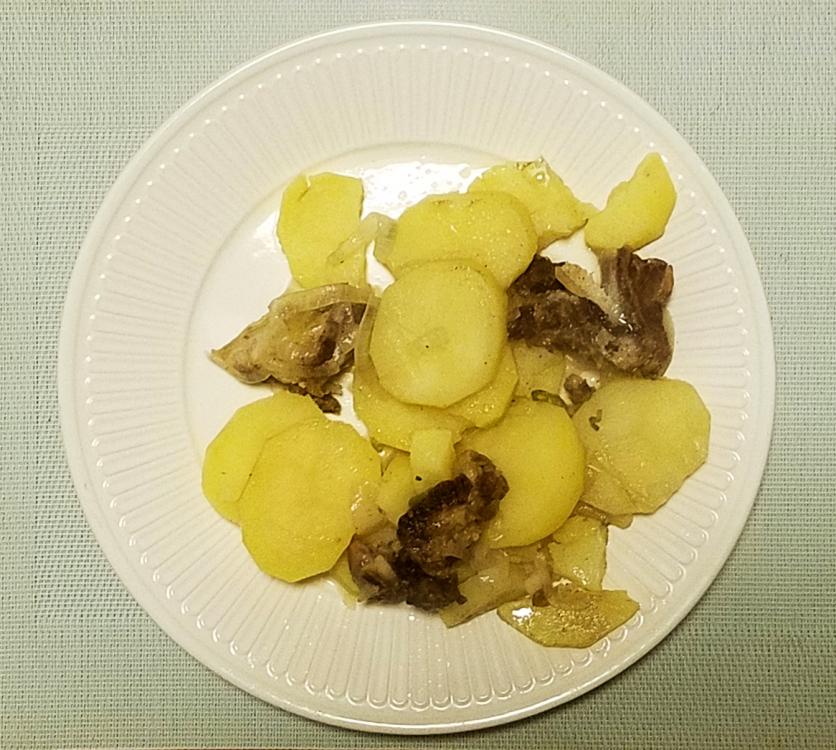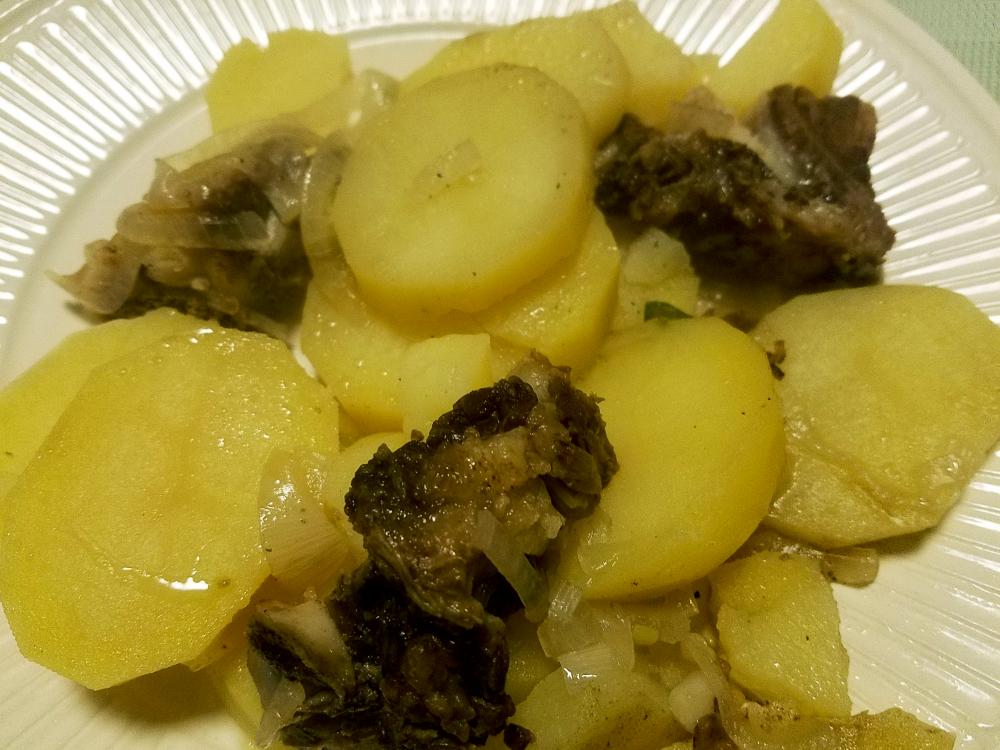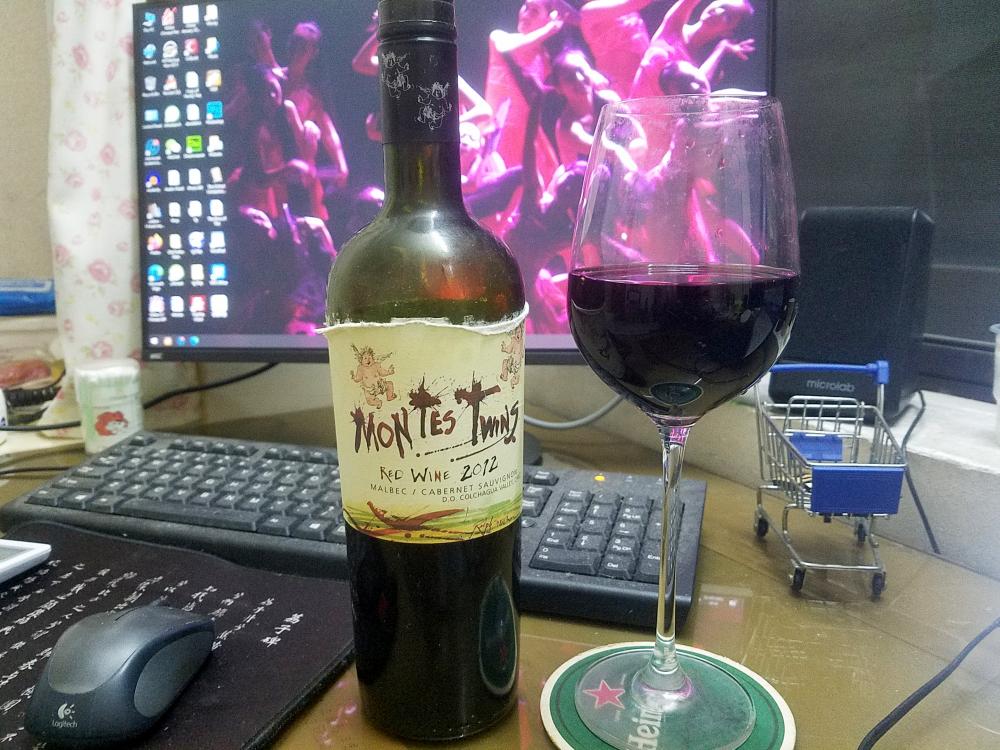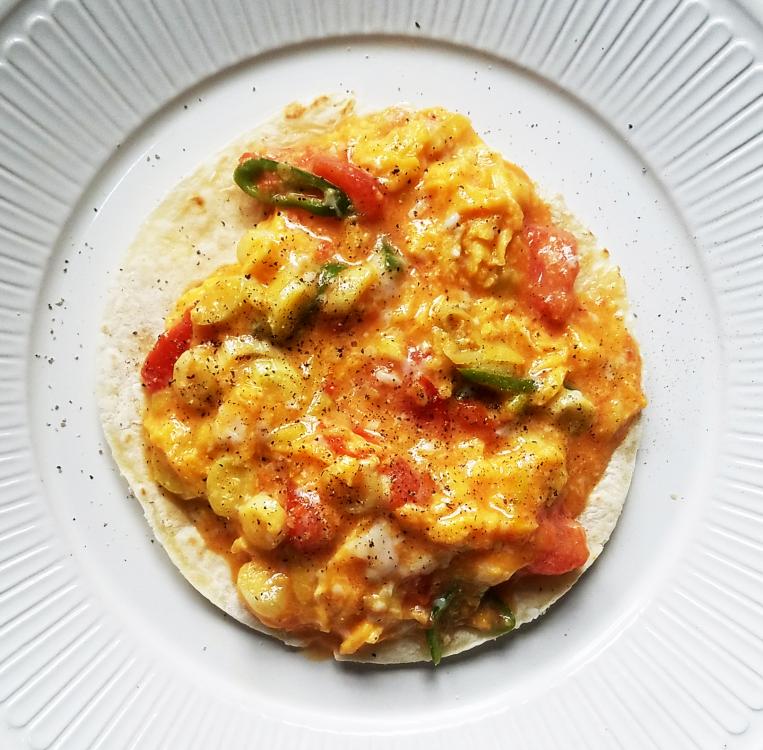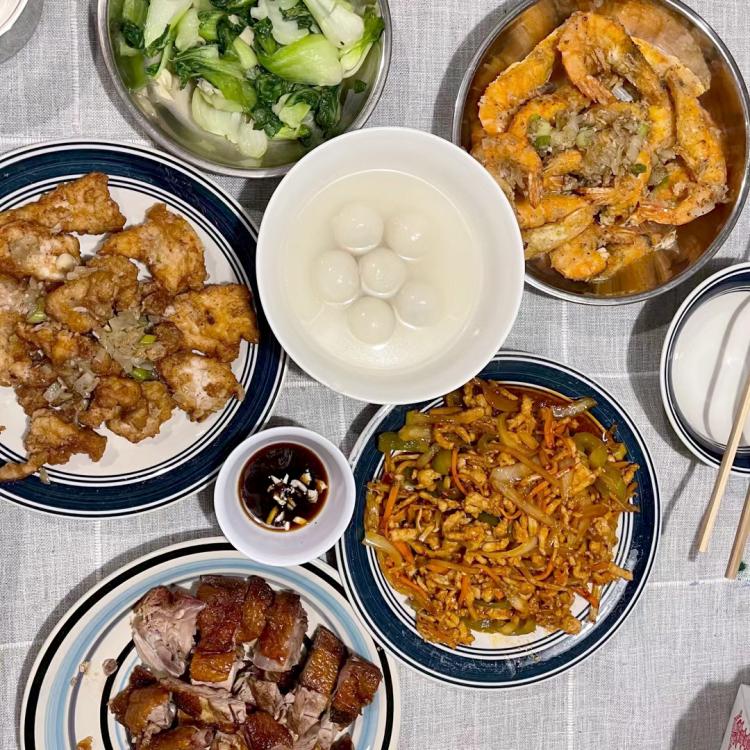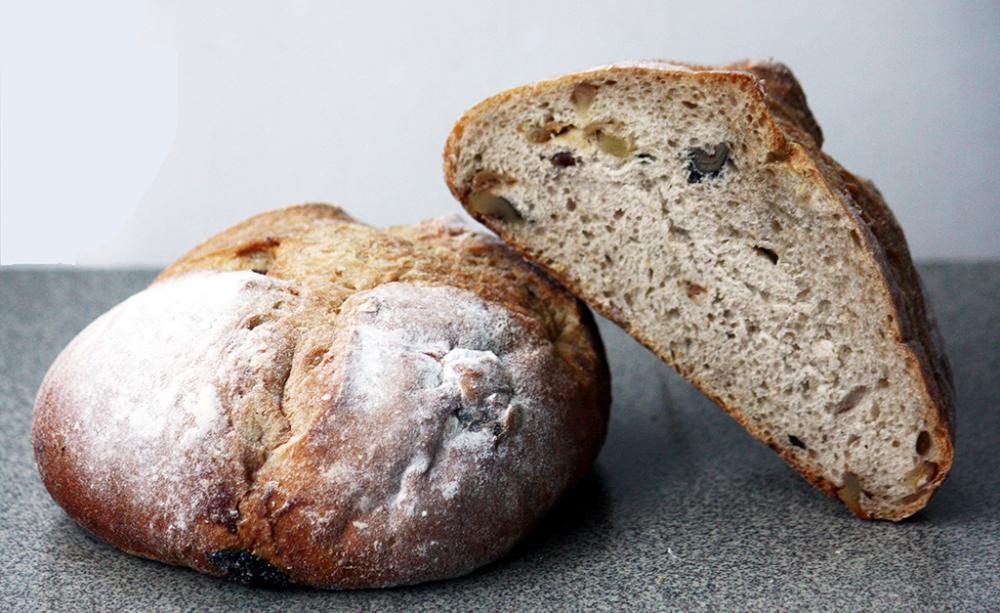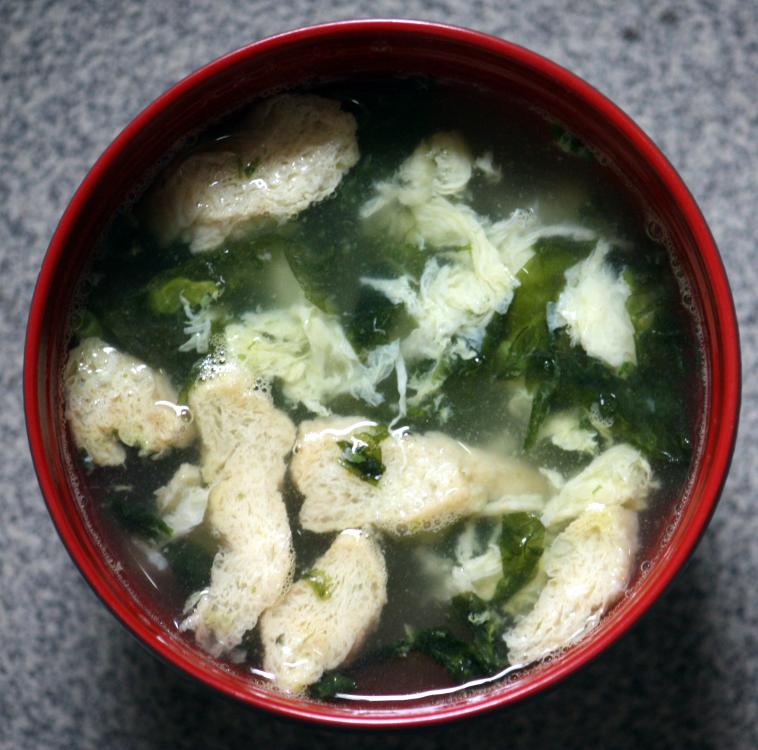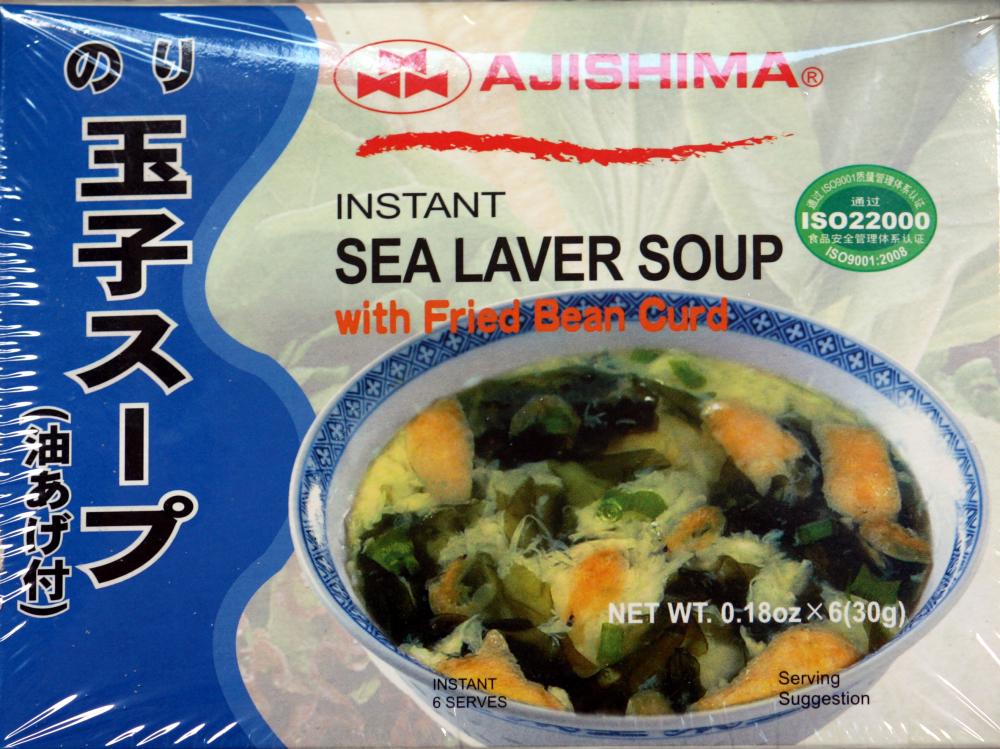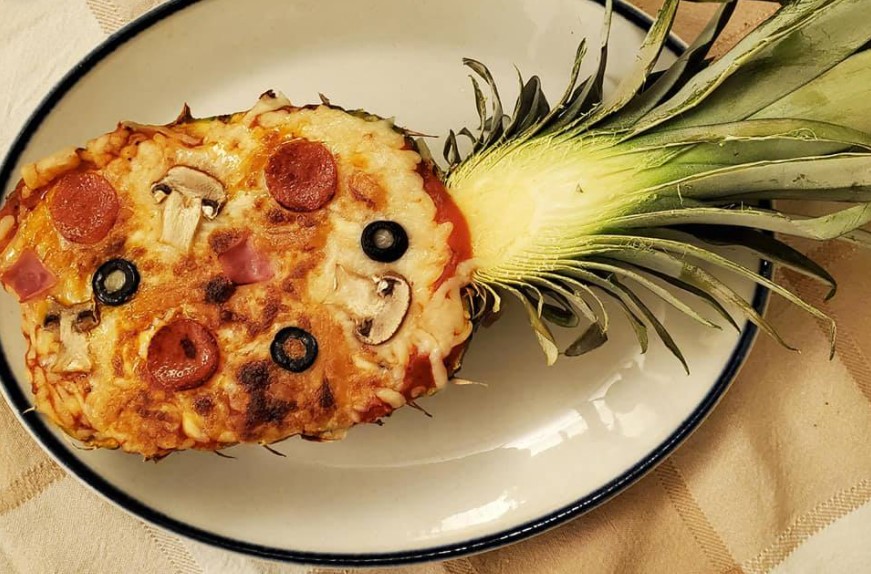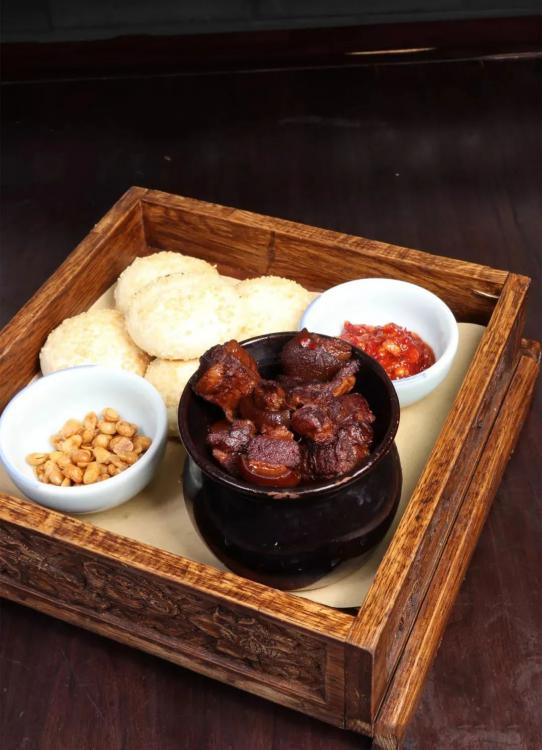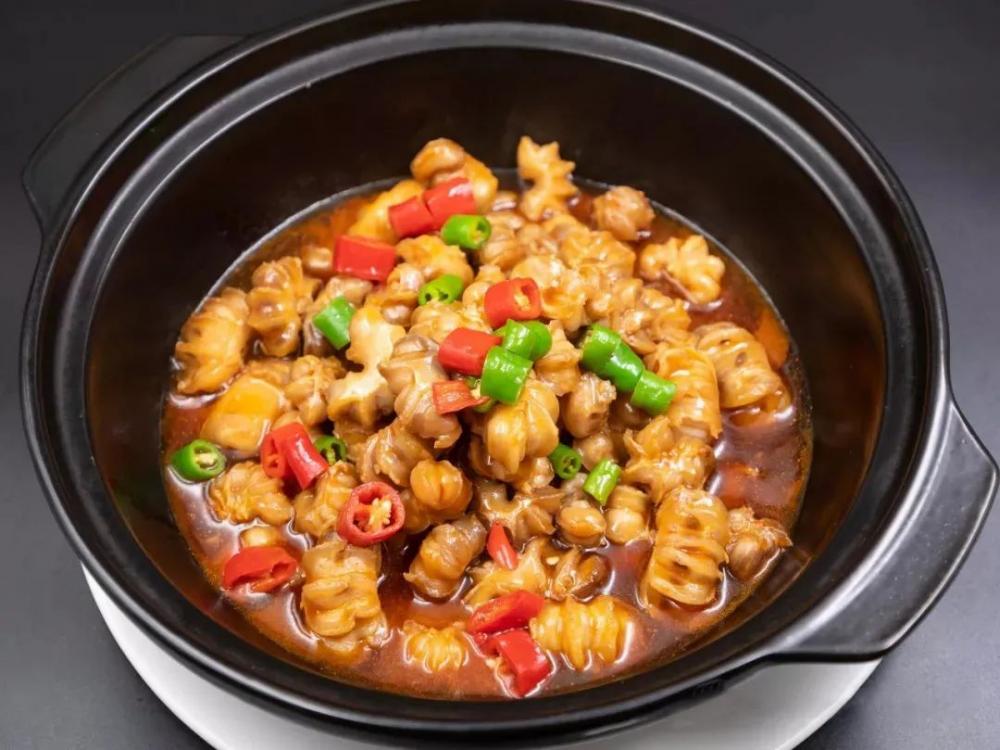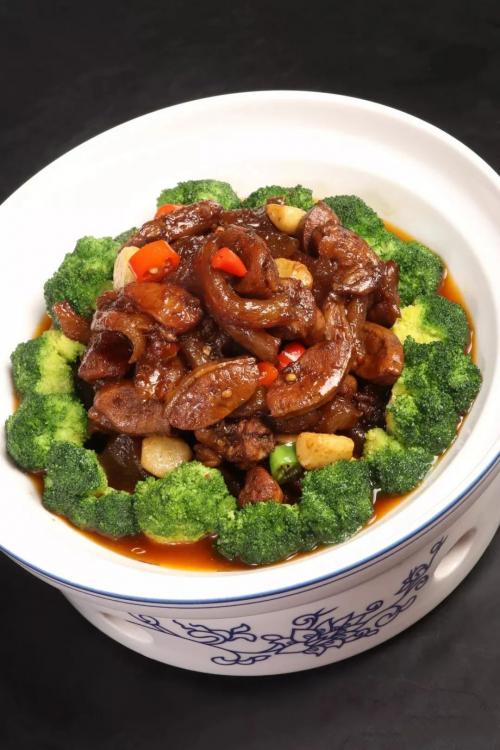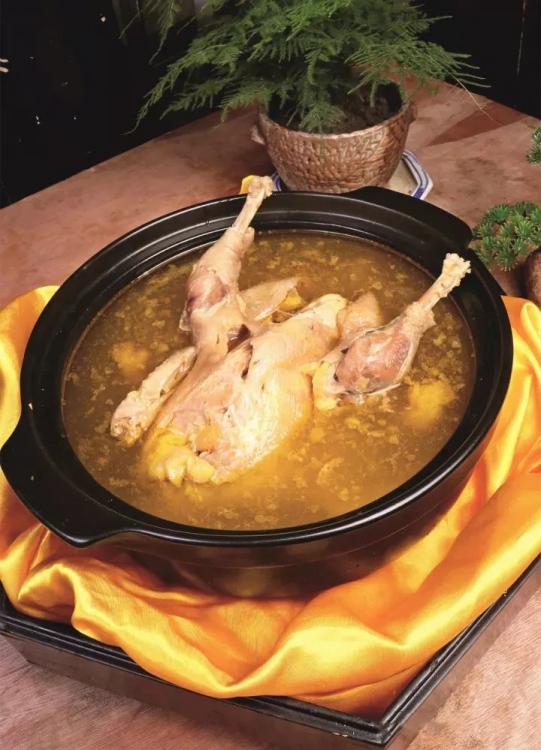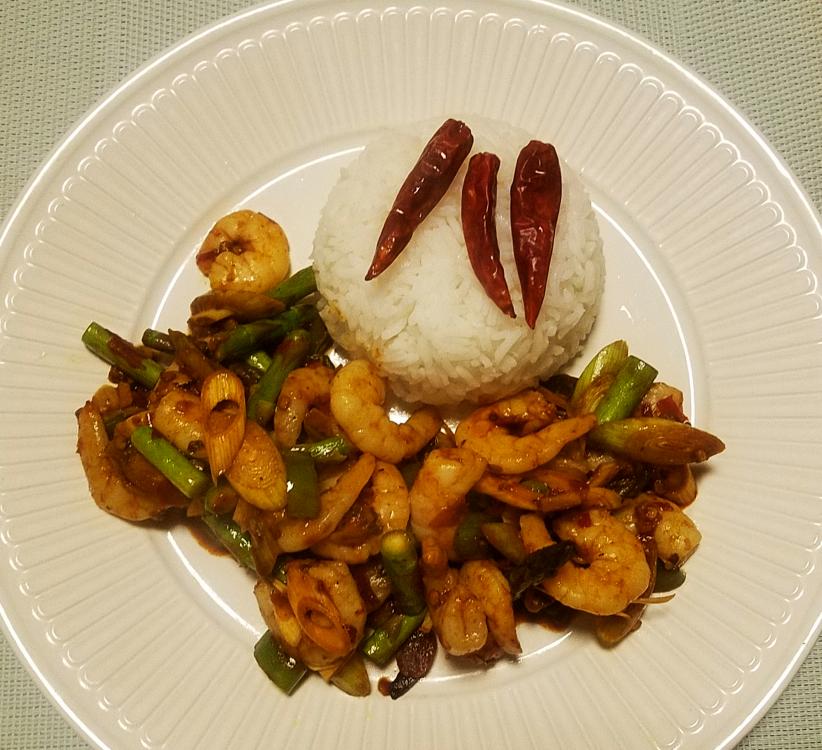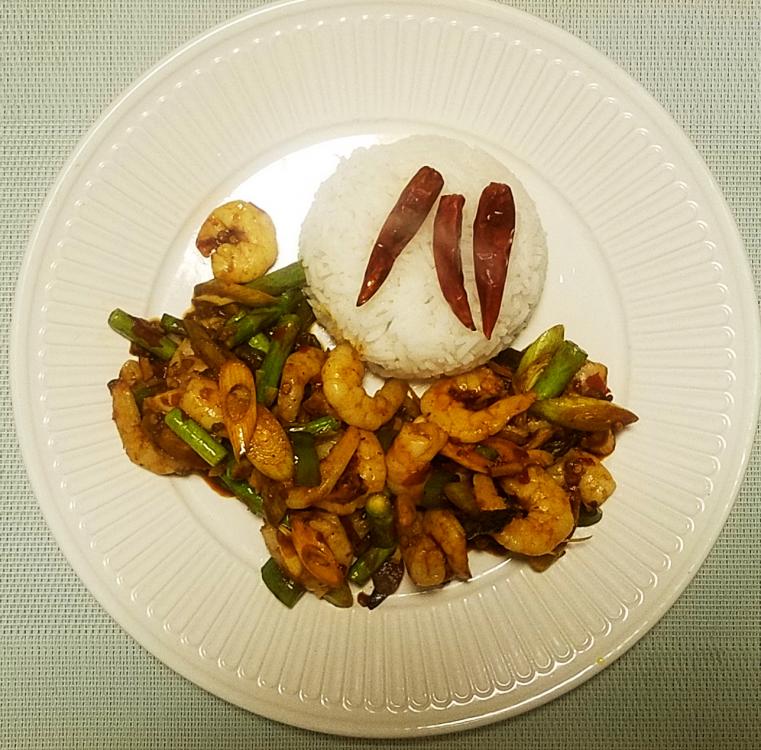-
Posts
16,809 -
Joined
-
Last visited
Content Type
Profiles
Forums
Store
Help Articles
Everything posted by liuzhou
-
The limitless joys of Google Mistranslate!
-
干酪和胡椒, per favore!
-
Slow cooked beef ribs and stovies. Cabbage (not pictured). A very nice Chilean Malbec/Cabernet Sauvignon.
-
A bit of a (partially) failed experiment. I intended to pimp up the popular standard Chinese scrambled egg and tomato with scallion dish (which I've made a million times) by adding some green chillies. I fried the tomatoes and chilli in one pan and the eggs in another. When the eggs were almost set I added the scallions, then the tomato and chilli mix. However, I guess the tomato mix was too wet or the eggs weren't as set as I thought, but the whole dish turned almost soupy. Served it anyway (only to myself) over flatbread and was delghted with the taste. I'll revisit for sure.
-
Last night was the Lantern Festival (元宵节 - yuán xiāo jié), which is the 15th and final day of the Spring Festival, which starts on Chinese New Year's Day. Traditional festive dinner excuse!
-
I didn't make this. I've complained before that bread in China is more like cake. I can get what look like baguettes but ain't great and I can get some pita-like things which aren't sweet, but that's it. There was a good baker in town, but they closed years ago. I think I was their only customer. Anyway, yesterday I passed a new place and thought to take a look, expecting total disappointment. It got close, but then I noticed this, labelled "nut healthy bread". Bought a loaf. It was nutty and had a little dried fruit, but very little. Not actually too bad. They'll be closed within the month! And it's the 27th!
-
-
Does it matter? It's a joke. Not a recipe!
-
-
I'm thinking of making carbonara for lunch. Do you think I should use green or red Sichuan peppercorns?
-
There's another article here with a slightly different take on the story and some more detail.
-
‘Each of us tastes the world with a different tongue’. John Thorne, Simple Cooking 1980
-
Vegetarian soups (or vegetarian anything) are very rare in Chinese cooking. I can't think of one! Even if they contain no actual meat, they are almost always going to be made with chicken stock. There are many fish soups, but 99.99% contain actual fish or seafood. I would suggest you just find a soup recipe using chicken stock and sub some vegetable stock (or just water) instead. You may want to look around the soup topic right here on eG. It has been running for many years and contains hundreds of soups of all kinds. For more on vegetarianism in China, see here.
-
Gastronomic History @GastroHistory on Twitter is also a good resource for.. well, gastronomic history.
-
Every day I get a text message featuring a couple of free recipes (in Chinese, of course). I've never made any, but often been tempted. Today, unusually, the message contains 50 recipes - "50 Specialty Signature Dishes". Quite a number are sandpot dishes. Here's just a few. I'm still making my way through them. Braised Donkey Chicken and Beef Soup The name of this translates as '3 Auspicious Treasures'. These are beef tendons, chicken leg and lambs testicles. Braised Bull's Whip (a euphemism for penis)
-
Drop scones and pikelets are the same thing. The name 'pikelet' is more common in Australia and New Zealand, although it comes from the Welsh.
-
You won't find a recipe for this in any Sichuan cookbook, but it is replete with Sichuan flavours and attitude. Not for the faint hearted. Prawns with asparagus, garlic, ginger, green Sichuan peppercorns, fresh green chilli, dried red chilli, doubanjiang and scallions. Rice. The three dried chillies on the rice are meant to read 川 (chuān) as in 四川 (sì chuān) which is a common abbreviation for the province.
-
We also called them pancakes. It was all a plot to confound the English - we baffled them by havng scones which they thought weren't scones and pancakes they thought weren't pancakes and twisted the knife further by them both being exactly the same thing. They have never recovered. As for swedes and turnips. Don't go there!
-
Yes. They was what we called 'scones' when I was a kid growing up in Scotland. The other kind of scones were some kind of alien English perversion. (Actually, I like both.)
-
So far as I am aware, it has never been common. Monkeys aren't that common apart from in the south. The problem in China with these 'exotic' meats today has nothing to do with nutrition, survival or even taste. They are an exercise in conspicuous consumption. The supposed medical benefits aren't a priority. "Look how rich I am!" $1000+ (USD) for a bear paw. Very, very few people have ever eaten it (or wanted to). The practice is abhored by most Chinese and, as I've said, penalties are severe - including up to the death penalty.




